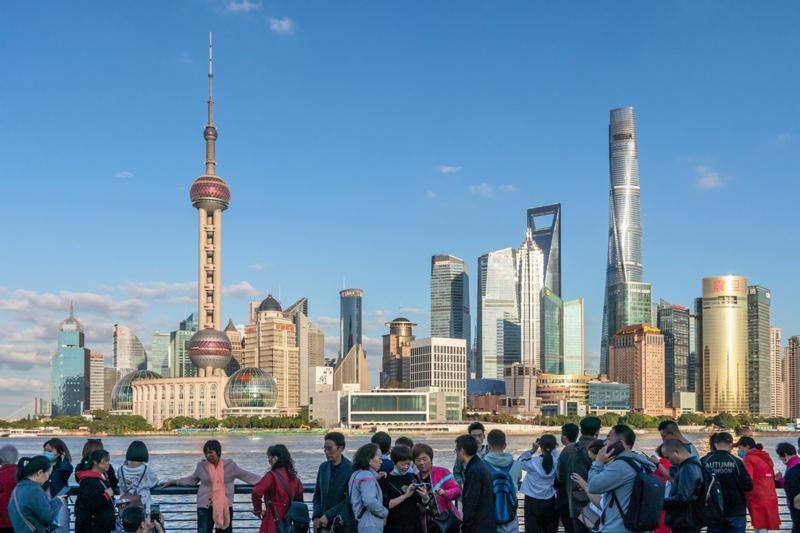 In this undated photo tourists gather at the downtown area of Shanghai. (WANG GANG / CHINA DAILY)
In this undated photo tourists gather at the downtown area of Shanghai. (WANG GANG / CHINA DAILY)
Boon Sing Ang, a Malaysian business executive who lives and works in Suzhou, Jiangsu province, last month became the first nonresident expatriate to receive a Shanghai residence card for foreign talent.
We have been making plans for the next five years to bring down more barriers that hinder the mobility of talent in the zone.
Shen Wenhua, an official with the executive committee of the Yangtze River Delta demonstra tion zone
Though he doesn't live in Shanghai, Ang will be able to enjoy benefits and conveniences that were previously only available to Shanghai residents in areas such as education, housing and healthcare.
The general manager of Suzhou Walter Electronic, Ang often has to make business trips to Shanghai and other cities in the Yangtze River Delta, an economic powerhouse with highly integrated industrial chains.
ALSO READ: International hub in Shanghai's Hongqiao expected to connect domestic, world markets
Now that he has a residence card, applying for a Shanghai vehicle license plate is on top of his to-do list. A person either needs to have a residence card or be a registered member of a household in Shanghai before bidding for a city vehicle license.
"It will make my trips in Shanghai faster when I get the license plate as there are some roads and expressways that have restrictions on vehicles from other places," Ang told Shanghai internet radio station Ajmide FM.
Allowing foreign talent working in the Yangtze River Delta demonstration zone to apply for Shanghai residence cards is one of the latest policy innovations made by local governments to boost the mobility of such workers in the region.
"I think this is a very good policy, and it can persuade more foreigners to work and live in the region," Ang said.
Currently, the pilot policy is being tested only in the demonstration zone, which includes the Wujiang district of Suzhou, Jiashan county in Zhejiang province, and the Qingpu district in Shanghai.
Eligible foreigners are those who have a bachelor's degree or possess special talents and are legally working or running a business in the zone, according to the Shanghai Municipal Human Resources and Social Security Bureau.
Zhu Lian, who works in the bureau's Qingpu district office, said applicants need to first consult with and have their materials checked by human resources service centers in Wujiang or Jiashan before applying at the center in Qingpu.
The whole application process takes about a month.
"The cardholder will experience conveniences in nine areas. Among other things, they can join Shanghai's municipal healthcare program and apply for a renminbi credit card in Shanghai, and their children can go to public school in the city," Zhu said.
READ MORE: Hongqiao CBD to become locomotive for development
The launch of the pilot policy involved coordinated efforts between departments across the two provinces and Shanghai.
The executive committee of the demonstration zone played a crucial role in pushing the policy through different administrative bodies.
"There was no precedent for this sort of policy, and we spent three months last year coordinating with different human resource bureaus," said Shen Wenhua, an executive committee official tasked with improving the business environment.
"We have been making plans for the next five years to bring down more barriers that hinder the mobility of talent in the zone, and we hope what we've done can be applied to the whole delta region in the future," Shen said.



